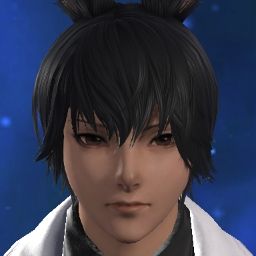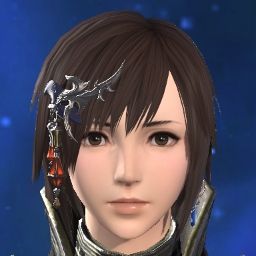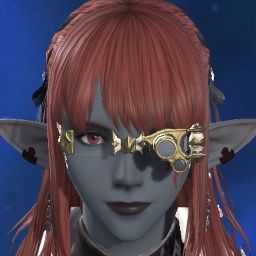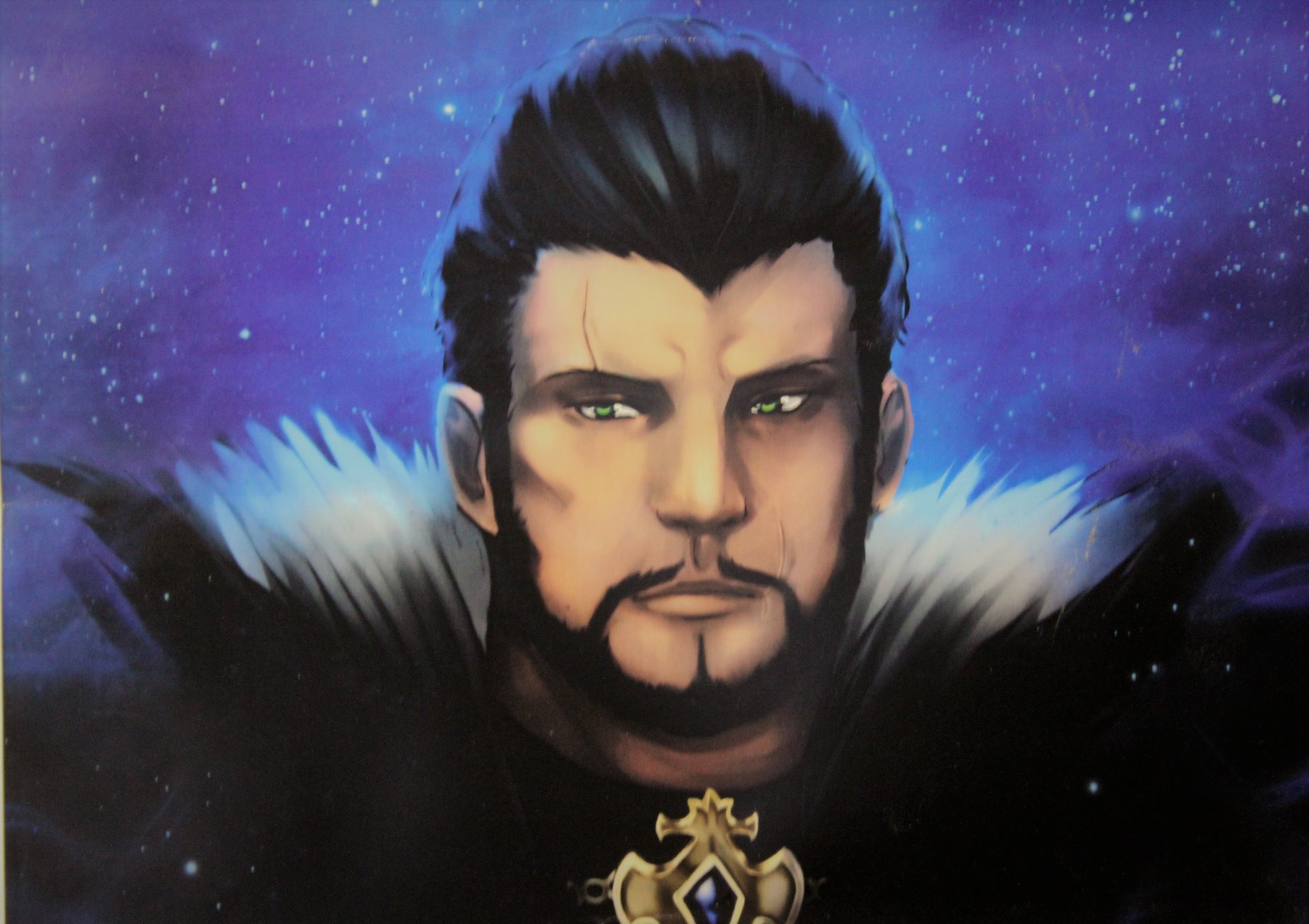Yeah, something I've generally noticed and become conscious of with the whole Ancient storyline is people piling WAY more meaning and scrutiny onto this singular part of the game's story than it was ever intended to be able to carry. As a result, the entire discussion just... warps and deforms under the weight. Sometimes it's really good to step back and center yourself on what we're actually discussing and the characters and structure in play.
And that is that the Ancient story is ultimately a high-concept mythological origin story, essentially 'this world's fall and rebirth', told in a way that leaves crucial actors in it still on the table for the rest of the story. Around that story it's openly acknowledged that neither side of the conflict was objectively morally right at the time, and open to interpretation as to who did right; however, as characters in that part of the story appeared in other parts of the story later in that story, we do have context that one side of that conflict goes on to do terrible things, while the other largely stays out and lets things come to pass in favor of playing the long game (which you could make a case is 'evil through inaction'). Nobody on either side regrets their part in what happens, although some may lament it.
There is room for complexity and subtlety in this, but it's not in the broad events, which by the end is played pretty big and broad even if we got information out of order; rather, it's in the characters. Emet-Selch is a man who never tells the whole truth--likely even to himself--and whose every word on the subject is constantly shifting in bias and shaped truths, even if he never says anything that's technically 'wrong'. Similarly, Venat-as-Hydaelyn also tells a very shaped and biased version of the truth, although rather than inundating us with information and conveniently leaving out pieces, she instead only puts what's important forward as inscrutable monologues and then hides from any questioning or analysis. But even those aren't exactly very quiet elements; in fact, huge parts of how we read the Ancient story comes from when the characters openly acknowledge that, and investigating for themselves rather than just sticking to what they've been told; that's how we got to Anamnesis, Elpis, and debatably Pandaemonium. (I think there's also something to be said that both Emet and Venat had a bit of a 'leak' in the form of an old spectral friend that doesn't follow their playbook.)
Over all the time of this forum constantly relitigating this argument, and trying to find or entirely invent new evidence or angles to find some other resolution for that initial conflict, can often lead to losing what the game actually put forward. As you said, it's fundamentally not serious, and it saves its complexities for how characters feel rather than what they did.
...it's also, and this should also be something we remind ourselves of, only part of a larger story. The game isn't about how the Ancients faced existential dread that forced their society to make difficult choices; it's about people in the Seventh Astral Era living their lives, trying to make their world better, solving as many problems as they can find, and occasionally fishing off a bridge into sand dunes at very weird hours trying to catch a malicious egg. The game didn't have much time to give to this story, so as a result, there's not exactly volumes to write about it, there's only so much room for nuance, detail and complexity. The Ancient story is hardly unique in this, either; if in some alternate universe this forum was instead spending all this time arguing about the legitimacy of the Hannish government, it would also be facing this problem.
-
06-05-2023 03:44 PM #151Player
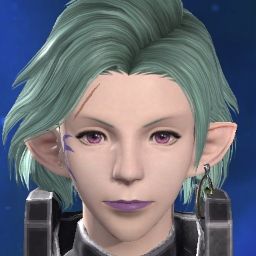
- Join Date
- Sep 2021
- Location
- Solution Eight (it's not as good)
- Posts
- 3,030
- Character
- Ein Dose
- World
- Mateus
- Main Class
- Alchemist Lv 100
(6)Last edited by Cleretic; 06-05-2023 at 03:54 PM.
-
06-05-2023 03:57 PM #152
I think we're supposed to agree that the ancients' culture was so static and stagnant that sundering and remaking the world was the only way forward but they made the mistake of making Emet-Selch TOO sympathetic in Shadowbringers, causing some players to defend the ancients' lifestyle
(2)
-
06-05-2023 04:44 PM #153Player
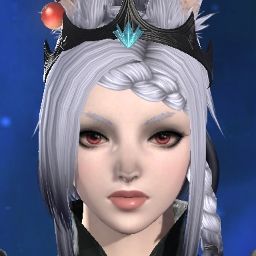
- Join Date
- Jul 2015
- Location
- Meracydia
- Posts
- 3,883
- Character
- Lythia Norvaine
- World
- Gilgamesh
- Main Class
- Viper Lv 100
There's nothing wrong with exploring a theme that has real world relevance in the context of fiction. But you do have an obligation to do apply the principles consistently.
I can see why people might want to talk about imperialism and colonialism in the context of the story lens. It's rather difficult to do this in the context of the World Unsundered, because most evidence we've seen points in favor of Amaurot being homogenous both in culture and in values.
You could argue that Amaurot's worldview carries an element of imperial detachment towards 'the provinces', as seen in both Debate and Discourse and the Volcano stories. But there's not a whole lot to go on outside of this, because the concept of 'other peoples' within the World Unsundered isn't really explored. The Sundering is definitely a unusual choice to talk about Colonialism, however. This is an act performed by a group of Amaurotines against their own government. It's a coup to take back political control. It's internal politics.
If anything, if colonialism was something that you were interested in engaging with, you'd be more likely to be talking about the actions of the Convocation across the past twelve-thousand years, where they pit nations against nations to divide and conquer, and set up puppet dictatorships like Allag and Garlemald to establish genuine colonial rule, suppress local values, and forcibly eradicate local religious practices using military force, all while maintaining a dehumanizing ideology that the Unsundered are merely 'twisted, malformed creatures' that are 'not truly alive'.
The discussion around genocide is another such example. Unfortunately, prior to Pandaemonium, Elidibus' most memorable moment involved him being chastised (by one of the game's most despicable villains, no less) for attempting to use chemical weaponry to eradicate both his own puppet state and our people in a single blow. It's probably Elidibus' worst moment, having literally just been chased out of Zenos' body by a standard imperial foot soldier in what amounts to the very pinnacle of cowardice.
And that's just the tip of the iceburg. Do we zero in on Venat's decision as 'cultural erasure', when her group attempts to put an end to the Convocation's authoritarian mandate from within her own nation? Her group forcibly erased the practice of involuntary human sacrifices, sure. You could point fingers at that, but it also raises the question whether all successful revolutions constitute 'erasure' of the value system of the old ousted dictatorship. And there's the bigger question of why you would not feel even more deeply uncomfortable around the mass murder of seven different worlds under Emet's leadership. It's all well and good to say that we should 'remember that he once lived', but who will remember the people of the Second, Third, Sixth, Seventh, Tenth, Twelfth, and Thirteenth reflections? There are so many cultures that the Convocation eradicated that we'll never even get to learn about now, and that's the saddest part.
I don't think that you need to 'feel bad' for liking any of the Amaurotine characters. Part of the point of stories is that it lets us explore ideas. But it seems like a lot of the discussions around these themes come across as a 'gotcha' in retaliation for the playerbase expressing genuine discomfort with the Convocation's actions historically across the past five expansions. And you can't really blame that for happening, because the Ascians were designed as one dimensional villains who were evil for the sake of being evil in ARR and Heavensward. Ishikawa trying to retrospectively salvage their characters doesn't change any of that.
It doesn't really help that none of this is particularly new ground, and it seems more a way of indirectly letting out frustration after every patch over the writers constructing the story the way that they want to. I'm not at all surprised that they want to move away from Amaurot, because it by and large seems to stifle more interesting discussion.(9)Last edited by Lyth; 06-05-2023 at 04:54 PM.
-
06-05-2023 05:08 PM #154
Can't resist adding more kindling.
I know people were mad that Endwalker doubled down on the ancients with even making the natural disaster twist from Amarot result on convoluted series of events, so even the natural disaster was not natural in the end but self-inflicted, actively discouraging all that goodwill someone might had felt over 5.0, but that is real.
In our world, on this earth, people use trauma as a shield from fault, it is nothing new.(1)
-
06-05-2023 05:42 PM #155Player
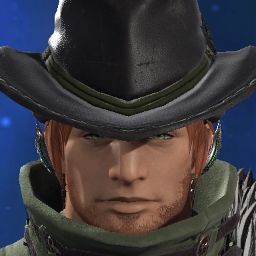
- Join Date
- May 2014
- Location
- The Interdimensional Rift
- Posts
- 3,600
- Character
- Vicious Zvahl
- World
- Excalibur
- Main Class
- Machinist Lv 100
No. No. And No.
There was no coup by Venat nor her followers. What they did was mass genocide against their own people for the sake of a future Venat heard about for roughly a day and a half. It wasn't taking control of the government. It was abolishing the government and installing Venat, and only Venat, as the dictator of the planet.
Again, you're wrong and ignoring large swathes of the setting. The puppet dictatorships weren't setup up to merely quell or colonize. They did those horrid things, yes, but they did them only so far as the Ascians let them, with the Ascians also fanning the flames and religious practices of their victims, trying to get them to summon their gods as primals. Please at least try to engage with the setting you're pantomiming understanding about. And if you can't, go back to the tank threads. At least there, you had interesting ideas more often than not.
Unsurprisingly, you say Elidibus's most memorable moment is having ZENOS chase him away from Zenos's body, and not, you know, the fucking Warrior of Light 6.3 Trial where he becomes a reflection of Sundered Azem, and battles us to the death set to what Soken thought might be his last musical composition in his whole life. And the moment you're talking about wasn't a standard imperial foot soldier. It was the monster that is Zenos wearing a decurion at the lowest. AKA the strongest individual antagonist in the setting. Good god, man. Have some class.'
You don't seek to replace an authoritarian mandate with another one, nor do you seek to supplant authoritarians with anarchy. That just leads to untold bloodshed. Untold bloodshed in this case being Venat knowing full well what her actions would lead to, namely the mentioned 7 worlds being destroyed. Which all first came at the cost of the first people's world. We also know that those destroyed worlds do live on in us, having been Rejoined, so there's at least some solace in the setting, but it's all a travesty that never needed to happen in the first place, and to say otherwise is to endorse genocide.
No. The Ascians started as one dimensional evil saturday morning cartoon villains, but even villains like that generally have some sort of back story. And in the case of RPGs, it is supremely common for villains to have a twist to their backstory. Even the original writers for XIV went into writing them with the understanding that they would be added to and changed over the course of the longterm story. All RPGs reveal little at the start to whet your appetite to know more, and then they capitalize on that desire later by revealing all. That doesn't mean we drop the issues we have with their villainous present, but it does mean that we understand why they did it, and in this case we empathize or should be able to empathize, because the setting we're in is fundamentally different than our real world, asking questions our real world has no clear answers for. If you can't empathize or at the very least sympathize with the Ascians, then it shows a lack of humanity and intelligence on your part. Either you refuse to embrace the bacon necktie, or you're operating selfishly. Surely, that's your prerogative, but it's not a good look.
You can't say what the writer's want. We'd love to think that the development team is given true creative freedom, but we all know that's not the case. They move away from Amaurot, because the overarching plot isn't about that, not necessarily because they want too. And in many ways they can't, since it's now an anchor to the game's lore. It will likely always have a tangential reference to it from here on out, since it is the origin of the world.(9)
(Signature portrait by Amaipetisu)
"I thought that my invincible power would hold the world captive, leaving me in a freedom undisturbed. Thus night and day I worked at the chain with huge fires and cruel hard strokes. When at last the work was done and the links were complete and unbreakable, I found that it held me in its grip." - Rabindranath Tagore
-
06-05-2023 07:46 PM #156Player

- Join Date
- Aug 2019
- Posts
- 334
- Character
- Floria Aerinus
- World
- Balmung
- Main Class
- White Mage Lv 80
Well, yeah. There's no point in discussing how Garlemald and Allag's actions are colonialist. The game is explicit about that already.
What makes the way FFXIV treats the Ancient's fate remarkable isn't that it's somehow the worst atrocity in the setting; in terms of bodycount, it's probably not even close. What makes it remarkable, and unique within its universe, is that the writers plainly want us to view it sympathetically.
I can't speak for anyone but myself, but I feel like what you - and sometimes Cleretic - do not or refuse to understand in these conversations is that the problem isn't diagetic (and I apologize for having let myself get caught up in meaningless arguments of in-universe fluff in the past). FFXIV is a work of fiction, and all of these groups and atrocities are made up. Venat didn't murder the Unsundered, the Ascians didn't murder even more millions in the successive Rejoinings, the Allagan Empire and the Ishgardians didn't commit a bunch of war crimes against dragons, and the Garleans didn't brutally subjugate two continents worth of people. It's all fake, and comparing these events is ultimately nerd navel-gazing. Fun, but basically meaningless.
What did happen, in real life, is that FFXIV's main scenario team wrote a story which seemed to ask me to understand a genocide as a necessary evil. And that is super weird. And it would have been no less weird if they had done this with, like, the Namazu instead.
To be blunt, I think you won't meet me or anyone else on these terms is because you are super invested in the setting, and feel uncomfortable in the position of having to defend the ethics of the writing itself. It's easier for you if everyone picking at this issue is just in-universe mad that their favorite characters "lost", because then you can then frame their feelings as selective and hypocritical sympathy.
But by refusing to meet the conversation where it is, you're just reinforcing the point, Lyth. Because if the Ancients really were as bad as you make them out to be - a bunch of god-playing, thuggishly authoritarian human-baby-sacrificers - all that would mean would be that the writers created a strawman with which to argue, intentionally or not, that indiscriminately exterminating a group (nation? race? species?) is sometimes for the greater good.
And that would be even worse.
We should be arguing about that. EW trying to spin a "be yourself and people will love you" narrative around an eternal shadow dictator who just keeps on at it afterwards was the second weirdest part of the plot.(11)Last edited by Lurina; 06-06-2023 at 03:43 AM.
-
06-05-2023 09:03 PM #157Player

- Join Date
- Sep 2021
- Location
- Solution Eight (it's not as good)
- Posts
- 3,030
- Character
- Ein Dose
- World
- Mateus
- Main Class
- Alchemist Lv 100
God damnit, and now we've introduced The G Word into this. This is exactly what I was referring to. I hate when people try to drag this in (and yes, I do regret using it myself for this in the past), because it does exactly what I was talking about, it breaks and warps the discussion into something that the subject matter was never intended to even remotely resemble.
Genocide is a very real crime and concept. It is, perhaps, the greatest of real crimes, not just in terms of scale, but in terms of the scars that current, living populations still bear. As a result, it holds not just a dictionary and 'criminal court' definition, but a very real cultural one, bearing very deep meaning and representing real, still-extant wounds. Hell, the term itself is part of that legacy; it was coined because there wasn't even a word to describe what happened to the Armenian people or in the Holocaust, no crime existing to charge them of.
Applying it to fake, insane fantasy nonsense like the Sundering or the Calamities, things that aren't even intended to be anything heavier than 'Noah's Flood if God felt bad about it', does nothing but cheapen and damage both the term and every single person and concept involved in the discussion, including the word itself.
- For the writers, the intention and ideas of the story is thrown out the window in favor of 'Who Did The Worst War Crime'; we're basically not meaningfully discussing the story as it was written anymore.
- For the characters themselves (Venat and the Ascians most of all), their entire arc has been flattened because what was supposed to be very abstract, indescribable actions that are intentionally impossible to judge on a human scale, and the character arcs of those involved, are now suddenly reduced to 'plain villainy'.
- For the people trying to discuss the subject as it was actually given to us, it's now all but impossible to actually talk about it without the conversation getting stomped all over with blind vilification.
- And for the term itself, suddenly we're associating a word intended to describe awful but realistic human crimes with the single least realistic, least human action I can even think of; something that on a baseline level can't even happen to humans. We've demeaned it to the point we can't use it properly. It's just used as a cudgel against people who disagree about a meaningless debate.
I'm not comfortable with saying any part of these effects are 'the worst part', because to do so would feel insulting; just as forum arguments about a weird fantasy concept in a video game are a poor fit for the term, so too is describing any of that argument's effects as 'worst' when the scale in any way includes the act itself. But I will say that this part of the ongoing argument has stifled my own ability to talk about the game's lore here, because there are parts where it's an appropriate term.
I don't feel like I can talk about the most interesting part of Sil'dih's variant dungeon to me. I loved that dungeon, and a big part was its exploration of what happened to Sil'dih, both in events and in people's response. Sil'dih was subject to a genocide, using recognizably human language, techniques, and tools; it was essentially a heightened version of what we'd know as early biological warfare, including the aftermath, where the culprits just... paved over the people they killed, and only generations later did anyone find the truth enough to reflect on it. I'd very much like to discuss this point and how well they wrote it, with the proper terms and gravitas.
But I can't. Because I know exactly what the discussion will turn into, and how quickly that initial intention will be lost in it.
I'd love to have this conversation, but this thread wouldn't be the right place even if we were still on the original topic. (For the record, my view is 'conceptually I disagree with it, and I still have concerns, but he's pulling it off and I'm not one to argue with results'.)(7)Last edited by Cleretic; 06-05-2023 at 09:14 PM.
-
06-05-2023 09:24 PM #158Player

- Join Date
- Jul 2015
- Location
- Meracydia
- Posts
- 3,883
- Character
- Lythia Norvaine
- World
- Gilgamesh
- Main Class
- Viper Lv 100
There are two separate issues with fate of Amaurot. The first was around the destruction wrought by the Final Days. I think that people on the whole view those events sympathetically. The destruction that it caused is not unique to Amaurot. We've seen what it did to the various civilizations represented in Ultima Thule, and also within our own society. You could say that the Final Days and the drive to live on in spite of it represents a common ground across all life.
Then there is the political in-fighting between the Convocation and Venat's faction. There really isn't enough information to make a clear cut decision around it in favour of either side.
- Why were the Amaurotines, a highly scientific people who viewed their Creations as a tools, suddenly describing Zodiark as their 'God' rather than just another Creation?
- Why were more sacrifices necessary - was it to fuel the aether required, or because Zodiark was hungry and demanded it in exchange for cooperation?
- What are the limitations of Zodiark's powers - could He infinitely generate new life in exchange for sacrifices, or did equivalent exchange/conservation of mass/energy/souls apply? If it was the latter, what was the point in more sacrifices in the first place?
- Were the Convocation acting this way because this was their plan from the outset, or did the summoning aetherically corrupt them in a way that rendered them His devout servants?
- Who was intended to be the next set of sacrifices - was it vegetables, as was frequently posited by part of this subforum, or were these the other human races that occupied the World Unsundered outside of Amaurot?
- What does it actually mean to Sunder someone or something? Is it murder or mitosis?
So the result is this circular discussion where you end up obliquely trying to argue that the Sundering technically kinda sorta maybe could be like murder in your personal headcanon, or maybe genocide because that makes for a better 'gotcha'. All the while trying to provide justification for why the Convocation in their infinite wisdom was justified in deciding to sacrifice fourteen worlds to sate their God in the hopes that he would reinstate their long dead utopia. Unfortunately, you cannot ignore the history of this game across the previous five expansions, and the narrative is such that you're going to run headlong into a contradiction every time that you try to do this.(7)
-
06-05-2023 09:41 PM #159
-
06-05-2023 10:06 PM #160Player

- Join Date
- Feb 2022
- Posts
- 5
- Character
- Roselin Sweetrose
- World
- Louisoix
- Main Class
- White Mage Lv 90
It seems I was still not successful in conveying myself, I'll try again. I do actually have quite familiar knowledge with genocide, having both studied it (and yes I did read Raphael Lemkin's books on the subject) and also having lived it.
I also understand settler-colonialism quite well, again having both studied it extensively and also having lived it my entire life.
I am not here to try to defend pixels or attack other pixels for being the bad pixels. My entire point was about the rhetoric often used in these discussions, by the players, not by the pixels in the pixel world.
To explain a bit better, imagine if the game had a SA scene, and after that the playerbase discussion around it would involve a lot of rhetoric like "she deserved it", "she was asking for it, look what she was wearing", would then a real life SA victim be wrong and "not understanding the real world implications of SA" for trying to say that this specific rhetoric is a bit uncomfortable to them?
I hope that made my point a bit more clear. (I am not here to attack anyone so please don't read hostile intent in this)
Edit: Oh I suddenly remembered something relevant to this! The unfortunate fact that the game itself uses the word "genocide" as a description of a plan similar in nature to the rejoinings and the sundering, namely Athena's plan.
https://i.imgur.com/1IjDtAy.jpeg
So I can't really blame the players for talking about these things like this given that the game does it and encourages it. (it was never really my intent to blame and cause guilt)(5)Last edited by Roselin; 06-05-2023 at 11:14 PM.




 Reply With Quote
Reply With Quote
